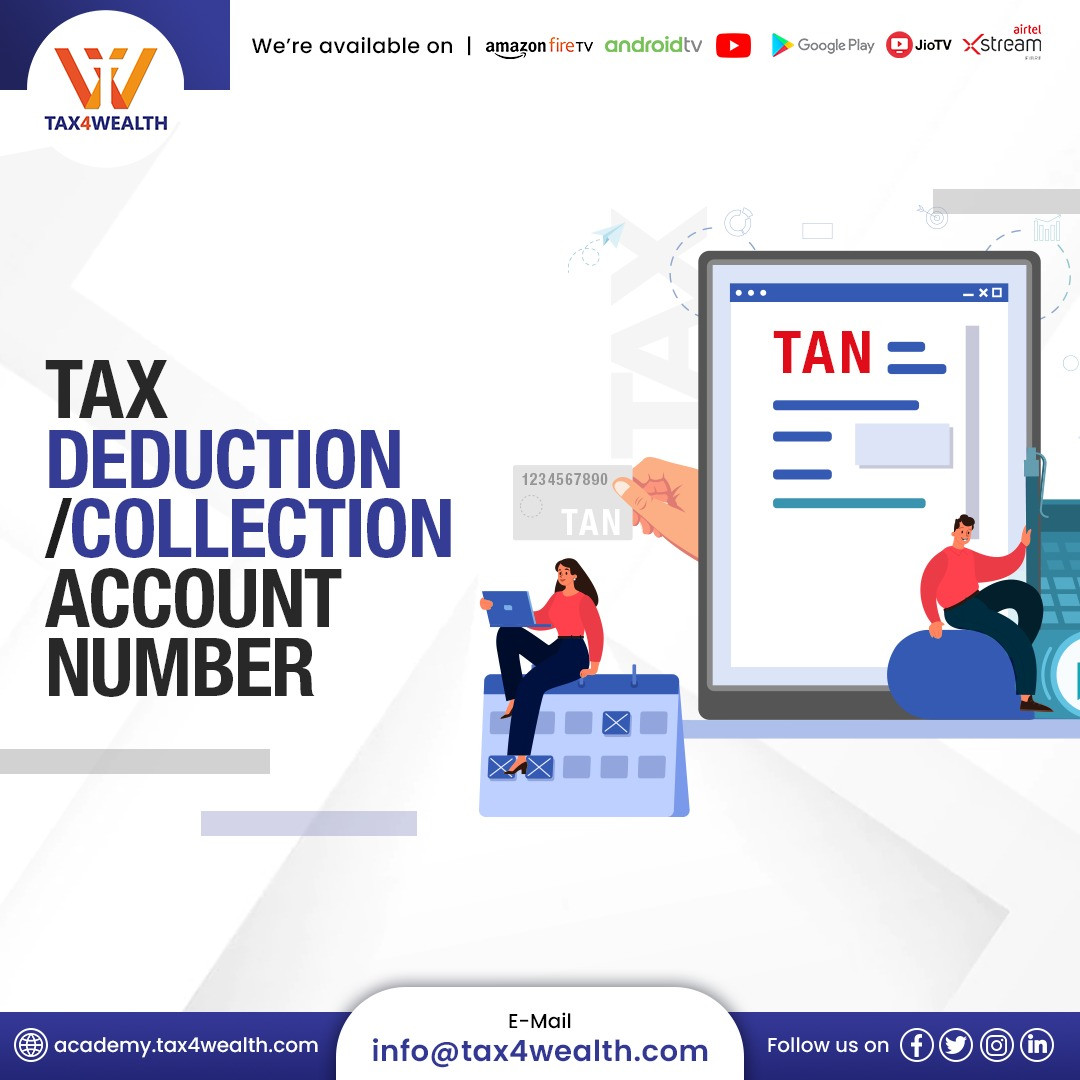
Everything about TAN: Tax Deduction and Collection Account Number
What is TAN?
TAN, or Tax Deduction and Collection Account Number, is an exclusive 10-digit alphanumeric code issued by India's Income Tax Department. This number is specifically designated for individuals who hold the responsibility of deducting or collecting taxes on behalf of the government. The legislative framework that governs TAN issuance and usage is outlined in Section 203A of the Income Tax Act of 1961.
Interestingly, individuals who are liable to deduct taxes under Section 194-IA of the Income Tax Act are exempted from obtaining a separate TAN. Instead, they can utilize their PAN for this purpose.
TAN holds a compulsory status for those who play the role of tax deductors at the source (TDS) for various forms of income such as salaries, interest, dividends, and other specified payments. Furthermore, entities engaged in the collection of taxes at source (TCS) for specific transactions as specified by the government are also required to possess a TAN.
The essence of TAN extends beyond mere identification; it serves as a pivotal instrument in monitoring and tracking tax deductions and collections facilitated by the holder. By using this unique identifier, individuals can seamlessly on filing TDS/TCS returns due dates, dispense TDS/TCS certificates, and execute payments linked to TDS/TCS responsibilities.
In pursuit of acquiring a TAN, interested parties must submit Form 49B through authorized channels such as TIN (Tax Information Network) facilitation centres or NSDL (National Securities Depository Limited) e-Gov TIN-FCs. Following the processing of the application, the Income Tax Department promptly allocates and communicates the TAN to the applicant.
Who is eligible to apply for the TAN?
In accordance with the Indian Income Tax regulations, individuals or entities tasked with the responsibility of either deducting tax at source (TDS) or collecting tax at source (TCS) are obligated to obtain a Tax Deduction and Collection Account Number (TAN).
The TAN application requirement pertains to the subsequent categories:
1. Individuals or firms engaged in business activities are subject to the obligation of deducting TDS, if liable, under the guidelines of the Income Tax Act.
2. This category encompasses Corporate entities, both public and private limited, that possess the obligation to deduct TDS or collect TCS as outlined by the relevant provisions.
3. Partnerships, limited liability partnerships (LLPs), and trusts are mandated to deduct TDS or collect TCS, if liable, must complete the TAN application process.
4. Government organizations or departments that have the responsibility to deduct TDS or collect TCS as per their operational mandates.
A Step-by-Step Guide for TAN Application Process:
A TAN is essential for individuals who are liable for deducting tax at source (TDS) or collecting tax at source (TCS). Here's a comprehensive guide on how to apply for a TAN.
Steps are:-
✅ Step 1: Obtain Form 49B
Begin by downloading Form 49B from either the official website of the Income Tax Department or the National Securities Depository Limited (NSDL).
✅ Step 2: Complete the Form
Thoroughly fill in Form 49B, ensuring accuracy in all details provided.
✅ Step 3: Attach Supporting Documents
Gather the required documents to be attached to the form:
- A copy of your PAN card
- A copy of your identity proof (e.g., passport, driver's license, voter ID card)
- A copy of your address proof (e.g., utility bill, rent agreement)
✅ Step 4: Pay the Application Fee
Make the necessary payment of the application fee, which amounts to Rs. 65. This fee includes an application charge of Rs. 55 along with 18% GST.
✅ Step 5: Submit the Form
Submit the completed form along with the attached documents at any authorized TIN (Tax Information Network) facilitation center or NSDL e-Gov TIN-FC.
✅ Step 6: Acknowledgement and Processing
Upon submission, you will receive an acknowledgement receipt for your application. The processing of your TAN application takes around 15 working days.
✅ Step 7: Receive Your TAN
Once the application is processed, you will receive your TAN through postal mail.
Furthermore, if you opt for the postal application method, please note that the processing time will be longer.
What are the Significances of obtaining a TAN?
The significance of a TAN can be encapsulated as follows:
TAN is a mandatory requirement for individuals responsible for tax deduction at source (TDS) on payments such as salaries, interest, dividends, and other stipulated transactions. It is also vital for those in charge of collecting tax at source (TCS) on specific transactions as designated by the government.
1. A TAN serves as a unique identifier that enables the tracking and monitoring of tax deductions and collections carried out by an individual or entity. It plays a pivotal role in filing TDS/TCS returns, issuing relevant certificates, and making payments towards TDS/TCS liabilities.
2. By mandating TAN for TDS and TCS operations, the government fortifies its ability to track the movement of funds, thus ensuring accurate and timely tax payments, consequently reducing the scope for tax evasion and fraudulent practices.
3. TAN simplifies the tax filing process for taxpayers. By providing their TAN number, individuals can circumvent the need to repeatedly furnish their PAN number and personal particulars.
In essence, TAN is a pivotal identification number for those accountable for tax deductions or collection on behalf of the government. It facilitates accurate tax payment and a seamless process for taxpayers to file their returns.
A Step-by-Step Process of TAN Correction:
Should you need to correct any errors in your Tax Deduction and Collection Account Number (TAN), follow these steps:
✅ Step 1: Obtain Form 49E
Commence by downloading Form 49E from either the official website of the Income Tax Department or the National Securities Depository Limited (NSDL).
✅ Step 2: Complete the Form
Carefully complete Form 49E, ensuring that all information provided is accurate and up-to-date.
✅ Step 3: Attach Supporting Documents
Gather the required documents to be submitted alongside the form:
- A copy of your TAN card
- A copy of your PAN card
- Copies of documents highlighting the error(s) present in your TAN
✅ Step 4: Pay the Application Fee
Process the application fee payment, which totals Rs. 100. This fee encompasses an application charge of Rs. 75 coupled with 25% GST.
✅ Step 5: Submit the Form
Deliver the completed form and accompanying documents to an authorized TIN (Tax Information Network) facilitation centre or NSDL e-Gov TIN-FC.
✅ Step 6: Acknowledgement and Correction
After submission, you will receive an acknowledgement receipt confirming the receipt of your application. The correction process takes around 15 working days.
✅ Step 7: Receive Your Corrected TAN
Upon successful completion of the correction process, your corrected TAN will be dispatched to you through postal mail.
No comments yet, Be the first to comment.













